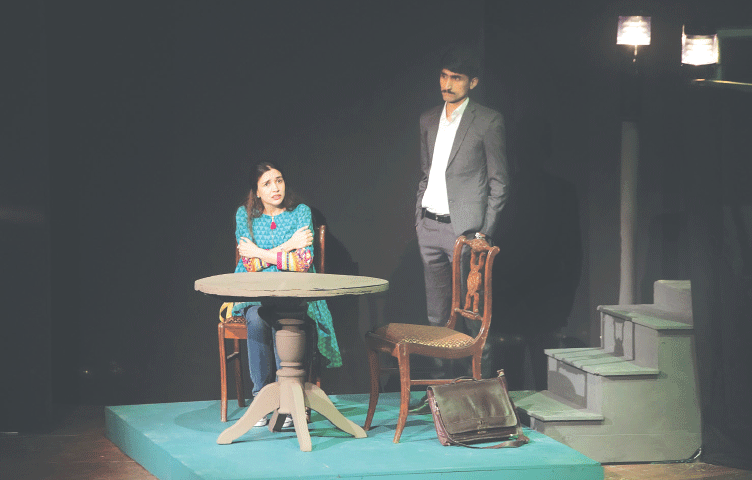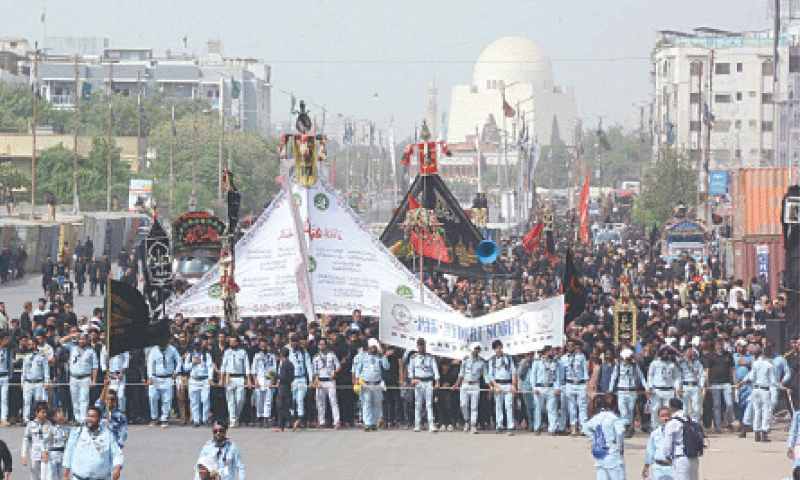Napa's Original Playwrights Theatre Festival: A Showcase of Fresh Urdu Language Plays
Discover the highlights of Napa's first-ever Original Playwrights Theatre Festival, featuring four original Urdu language plays that captivated audiences with their contemporary themes and diverse storytelling styles. From introspective dramas to biting satires, the festival showcased the talent and creativity of Pakistani playwrights, offering a glimpse into the vibrant world of local theatre.

There’s a certain thrill in watching something original come alive on stage, a story that hasn’t yet been seen, characters you’ve never met before, and dialogue that hasn’t already been quoted on social media.
That’s exactly what Tasneef, the National Academy of Performing Arts’ (Napa) first-ever Original Playwrights Theatre Festival, delivered: a powerful, promising showcase of four original Urdu language plays that left audiences hopeful for the future of Pakistani theatre.
Marking 20 years of theatrical excellence, Napa has long been a hub of dramatic innovation. But this time, the spotlight was firmly on the storytellers, the playwrights. The festival was born out of a national open call for original Urdu scripts, and the response was heartening: over 30 entries from all over Pakistan. Through a blind, merit-based process, four scripts were selected, directed, rehearsed and staged from June 13-21, under the curatorship of Afreen Seher, Head of Theatre at Napa.
These weren’t recycled adaptations or familiar re-runs. Tasneef was fresh, contemporary and deeply rooted in the issues and rhythms of today’s Pakistan. Each play brought with it a distinct genre and narrative style, giving theatre-goers a well-rounded, thought-provoking experience.
Here’s a look at the four standout plays that were showcased:
Musafir: A conversation that lingers
Written and directed by Farhan Alam Siddiqui
Musafir
Opening the festival was Musafir, a slow-burn narrative that takes place at a seemingly mundane train station, until it doesn’t. What begins as a light exchange between two strangers on a bench unfolds into a layered dialogue about dreams, detours and the burden of expectations.
1st Time in Pakistan: Satire meets systemic decay
Written and directed by Zakiullah Khan
1st Time in Pakistan
Possibly the most talked-about play of the lot, 1st Time in Pakistan was a biting satire set in a fictional town called Karta Dharta. Protesters gather outside a government office, frustrated by the town officer’s inaction over basic sanitation, sewage and water problems.
Saraab: The pressure of pretence
Written and directed by Damyanti Gosai
Saraab
A haunting, introspective drama, Saraab explored the psychological and societal expectations placed on individuals. Written and directed by Damyanti Gosai, a Napa alumnus and multilingual translator, the play unfolded like a fever dream, where reality blurs into illusion.
In The Middle: A love letter to struggling artists
Directed by Usama Khan
In The Middle
In The Middle was the festival’s meta-commentary on theatre itself. The story followed three aspiring actors, all stuck in a tough spot, where they must make a decision within six days that could change everything.
Why Tasneef mattered
It was heartening to see original Pakistani scripts being staged and, more importantly, celebrated. With Tasneef, Napa has given fresh voices the space to be heard, the training to be polished, and the audience they deserve. Festivals like these are crucial to the health of our cultural ecosystem. They don’t just entertain; they challenge, inform and nurture talent that might otherwise go unnoticed.
While Napa and its faculty have done the heavy lifting, initiatives such as Tasneef require more than just passion; they need institutional support. For Pakistan’s theatre to flourish and evolve, it is imperative that the government step in to support such festivals, fund cultural institutions, and invest in creative infrastructure.
Art thrives when it is nourished, and artists thrive when they are trusted.
Published in Dawn, ICON, July 6th, 2025.
What's Your Reaction?
 Like
0
Like
0
 Dislike
0
Dislike
0
 Love
0
Love
0
 Funny
0
Funny
0
 Angry
0
Angry
0
 Sad
0
Sad
0
 Wow
0
Wow
0














































































































































































